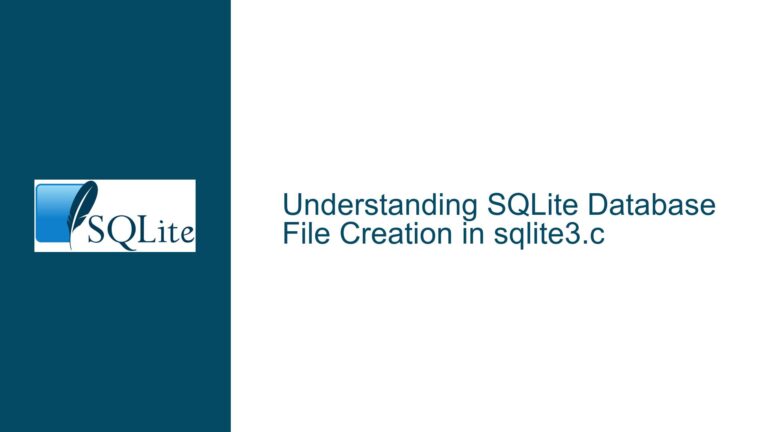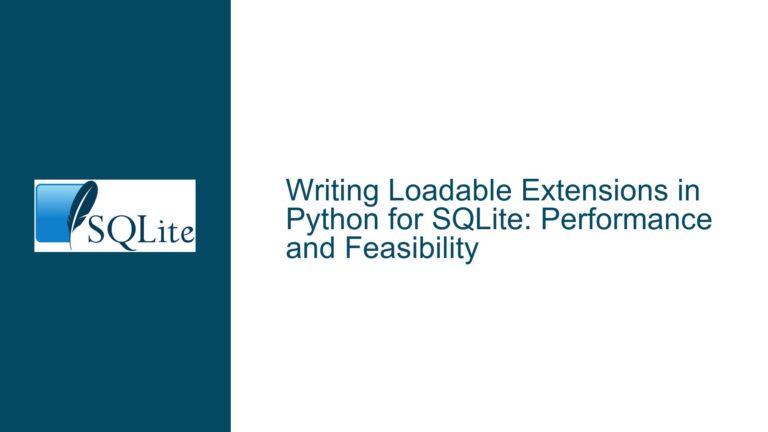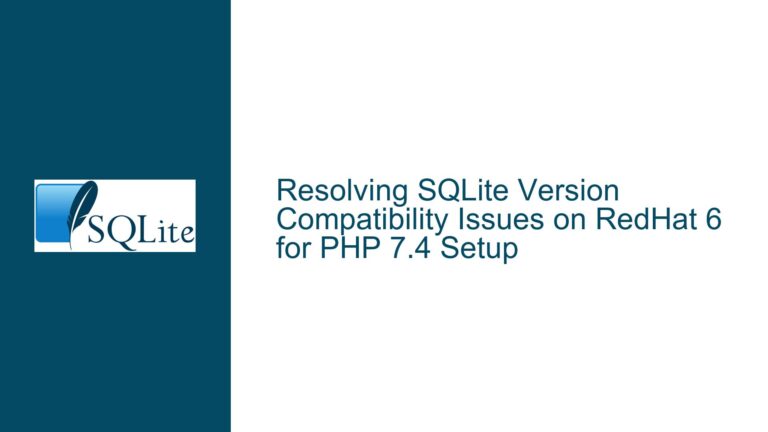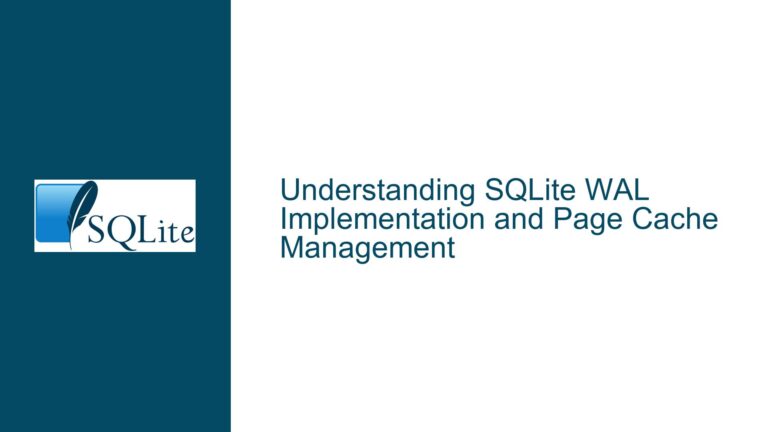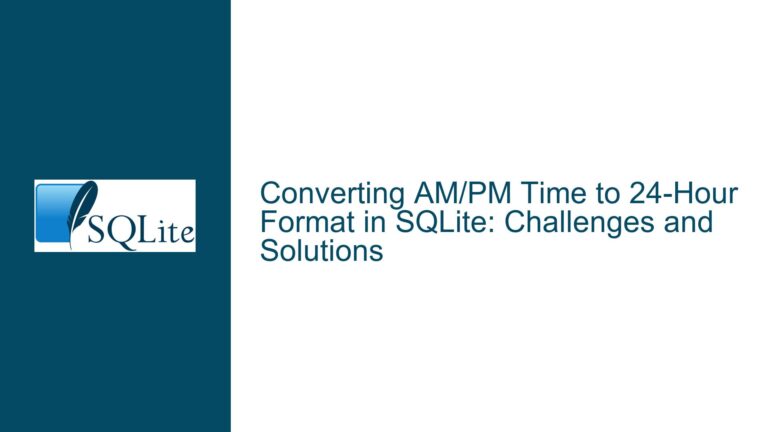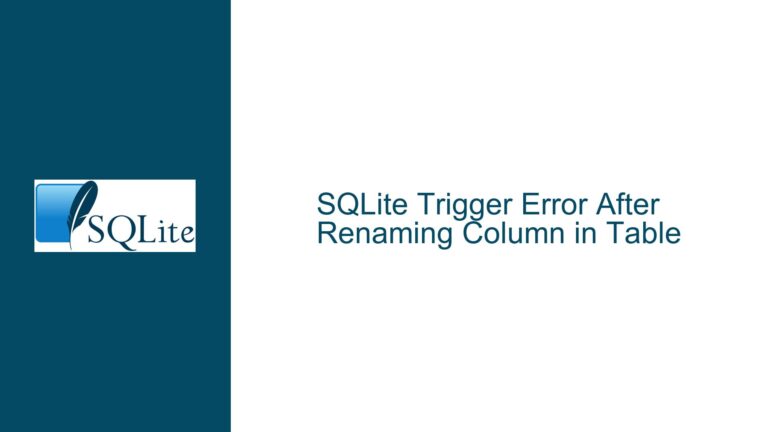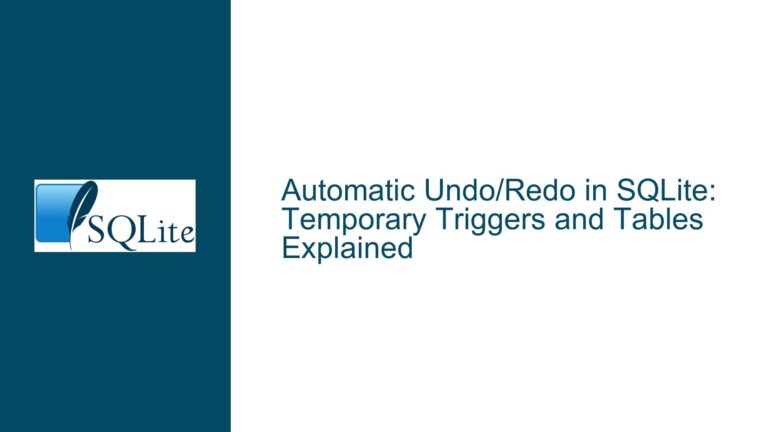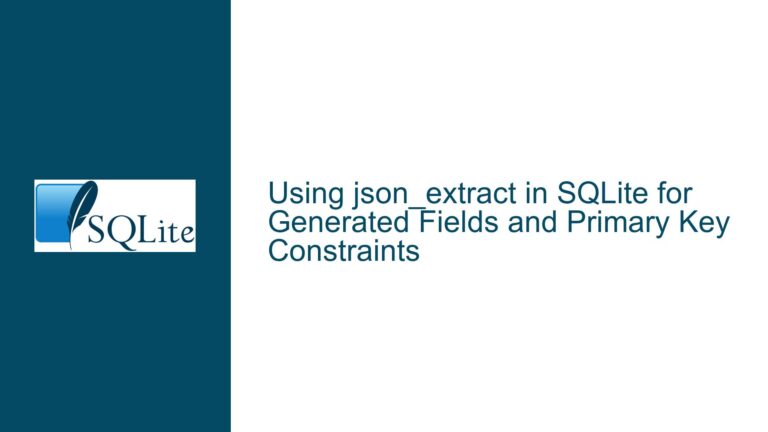SQLite Database File Creation in sqlite3.c
Issue Overview: Identifying the Exact Point of Database File Creation in sqlite3.c When working with SQLite, one of the most fundamental operations is the creation of a new database file. This operation is typically initiated using the sqlite3_open_v2() function, which is designed to open a database connection and, if necessary, create a new database file….
